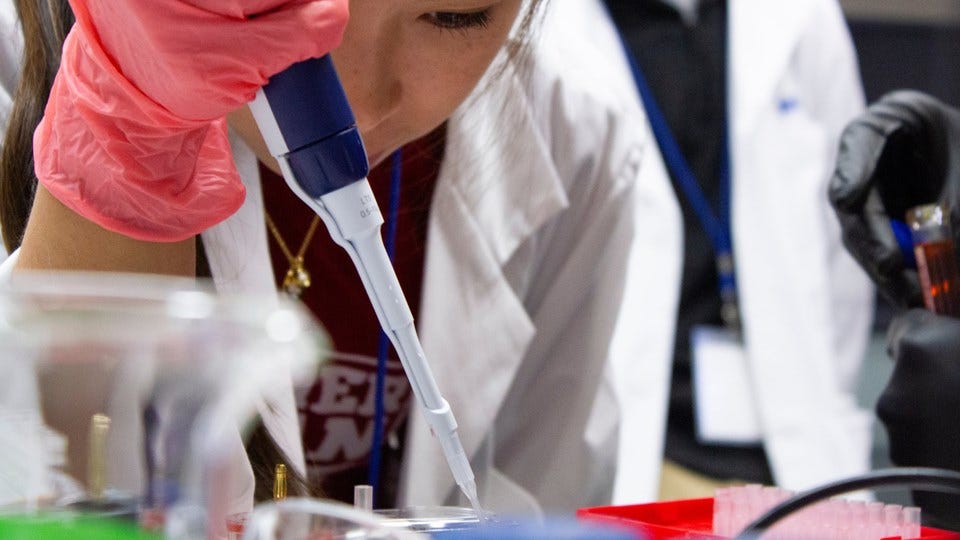Study to Track Asymptomatic COVID-19 Patients
 (photo courtesy of Indiana University School of Medicine)
(photo courtesy of Indiana University School of Medicine)
Subscriber Benefit
As a subscriber you can listen to articles at work, in the car, or while you work out. Subscribe NowIndiana University School of Medicine researchers are launching a community-based study to find out how many asymptomatic people in Marion County have COVID-19. IU says the study is the first to assess active COVID-19 in people who aren’t showing symptoms.
The study, called Tracking Asymptomatic COVID-19 Through Indianapolis Communities, is being led by IU physician-scientists Dr. Chandy John and Dr. James Wood.
“We know that not everyone who contracts COVID-19 shows symptoms, which is why it’s so important to understand how common it is in the community,” said John, director of the Ryan White Center for Pediatric Infectious Disease and Global Health at IU School of Medicine. “Our team has been working together for weeks to make sure we could start the study as quickly as possible since we know how valuable this information will be. There are currently no community studies in the U.S. that assess active infection in both adults and children.”
People who are already part of the All IN for Health volunteer registry will receive invitations to participate via email if they live in Marion County. When a home is selected for the study, an IU School of Medicine representative will drop off an at-home nasal swab testing kit and volunteers will self-administer at home.
“It’s important for us to study whether children are infected,” said Wood, assistant professor of pediatrics at IU School of Medicine and infectious disease doctor at Riley Hospital for Children. “Some early studies suggest that children could be a major source of asymptomatic spread, while other more recent studies suggest children have less asymptomatic infection. It’s important to know which is the case here in Indiana. Along with the participants’ age and location, we’ll be looking at ethnic and racial backgrounds to determine if certain populations are disproportionately affected by the coronavirus.”
Each sample kit will be sent to a testing agency, and researchers expect to receive the results within five to seven days. Results will be shared with participants and additional instructions will be given if a test comes back positive.
